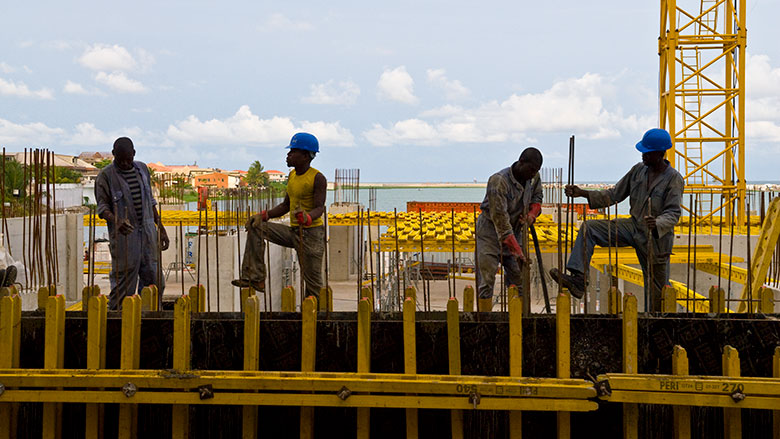ABUJA, June 15, 2021 – In 2020 the Nigerian economy shrank by 1.8%, its deepest decline since 1983. The COVID-19 crisis drove the economic slowdown; the external context was marked by capital outflows, intensified risk aversion, low oil prices, and shrinking foreign remittances.
The Nigeria Development Update Resilience through Reforms states that reforms implemented by the Nigerian government were critical and timely to alleviate the impact of the recession on the economy and to create additional fiscal space. Reform slippages would threaten the pace of recovery and limit the government’s ability to address gaps in human and physical capital.
The report discusses policy options to reduce inflation, protect the poor and vulnerable and support economic recovery. Accomplishing these goals will require a big push in exchange-rate management, monetary policy, trade policy, fiscal policy, and social protection. Some specific measures recommendations are the following:
- Increasing the transparency and predictability of exchange rate management policies to reduce distortions in allocations in the private and public sector; and to ensure that agents can access foreign exchange in a timely and orderly manner, at an agreed rate.
- Clearly defined monetary-policy priorities and objectives, with price stability as the primary goal. The resumption of naira-denominated open-market operations (OMOs) based on a transparent issuance schedule, and signal to markets that OMOs will use short-maturity securities to achieve price stability.
- Full and effective reopening of land borders for trade and strengthening regional cooperation to combat smuggling.
- Facilitation of imports for staple foods and medicines by removing them from the list of foreign exchange (FX) restrictions and replacing import bans and with tariffs that align with the ECOWAS Common External Tariff.
- Establishing mechanisms to monitor and report the federal government’s stock of Central Bank overdrafts to control the growth of the money supply.
- Full elimination of the petrol subsidy; and design of sequenced reforms to mobilize domestic nonoil revenue in a way that does not affect the economic recovery, including increasing excise taxes on harmful consumption goods, rationalizing tax expenditures, removing loopholes in tax laws, and improving tax compliance by strengthening revenue administration.
- Leveraging the National Social Safety Nets Program (NASSP) to provide transfers to additional households, and temporarily increase transfers to current beneficiaries
- Complementing the NASSP with the National Home-Grown School Feeding Program (NHGSFP) to strengthen the food security of vulnerable households in 26 States: and rapidly implement the World Bank-supported CARES project to support households, farmers, and firms.
Recent Economic Developments
The Nigerian economy is expected to grow by 1.8% in 2021, though there is high uncertainty about the outlook. The recovery would be driven by rise in oil exports and in domestic demand. However, Nigeria’s recovery is expected to underperform those of other oil producers, and an unexpected shock to oil prices could threaten the modest growth projected. Moreover, high inflation and high unemployment exacerbate macroeconomic risks, and activity in the tertiary sector will not fully normalize unless COVID-19 is contained. By the end of 2021, Nigeria’s GDP is likely to approach its 2010 level, thus reversing a full decade of economic growth. GDP per capita is projected to continue declining because the economy is forecast to grow more slowly than the population.

